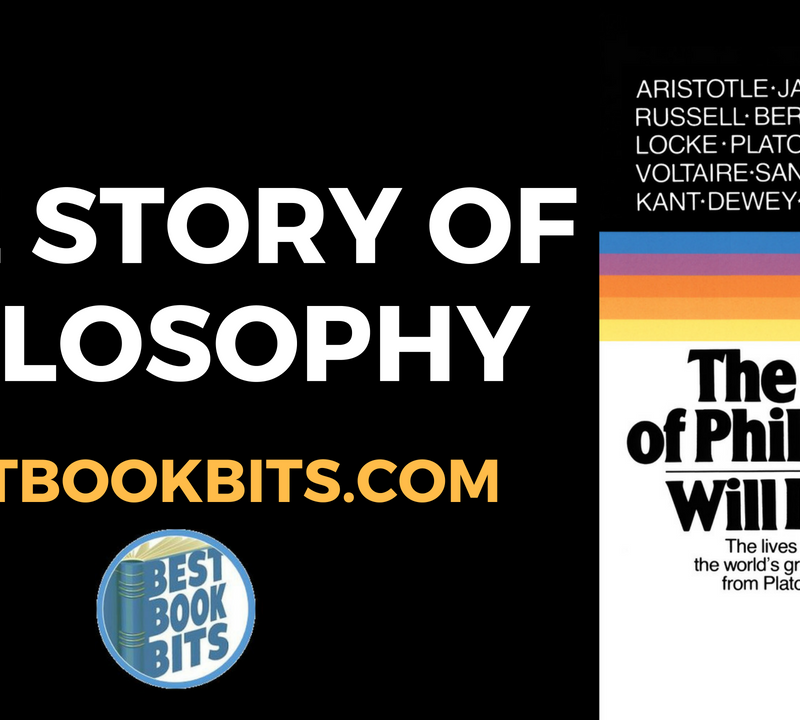★DOWNLOAD THIS FREE PDF SUMMARY HERE
? MY FREE BOOK TO LIVING YOUR DREAM LIFE”
? SPONSOR BESTBOOKBITS BY USING PATREON
? SUPPORT BESTBOOKBITS BY CLICKING THE LINKS BELOW
- 150 PDF Summaries
- Coaching Program
- Subscribe to My Channel
- Website
- Spotify
- Book Club
- Mailing List
SHORT BIO
Epictetus born in present day Turkey in 55 A.D. and died age 80 in 135 A.D. He was a Greek Stoic philosopher and born a slave, spending his youth as a slave in Rome. Epictetus obtained his freedom sometime after the death of Nero in 68 A.D. and he began to teach philosophy in Rome. About 93 A.D. Emperor Domitian banished all philosophers from the city and Epictetus went to Greece, where he founded a philosophical school.
Epictetus taught that philosophy is a way of life and not just a theoretical discipline. To Epictetus, all external events are beyond our control; we should accept calmly and dispassionately whatever happens. However, individuals are responsible for their own actions, which they can examine and control through rigorous self-discipline. He lived a life of great simplicity, with few possessions.
No writings by Epictetus are known. His discourses were transcribed and compiled by his pupil Arrian.
- All philosophy lies in two words, sustain and abstain.
- Always remember what is your own and what is not, and you’ll never be troubled.
- Any person capable of angering you becomes your master; he can anger you only when you permit yourself to be disturbed by him.
- Caretake this moment. Immerse yourself in its particulars. Respond to this person, this challenge, this deed. Quit the evasions. Stop giving yourself needless trouble. It is time to really live; to fully inhabit the situation you happen to be in now. You are not some disinterested bystander. Participate. Exert yourself.
- Circumstances don’t make the man, they only reveal him to himself.
- Control thy passions lest they take vengeance on thee.
- Destroy desire completely for the present. For if you desire anything which is not in our power, you must be unfortunate.
- Do not afflict others with anything that you yourself would not wish to suffer. If you would not like to be a slave, make sure no one is your slave. If you have slaves, you yourself are the greatest slave, for just as freedom is incompatible with slavery, so goodness is incompatible with hypocrisy.
- Do not try to seem wise to others. If you want to live a wise life, live it on your own terms and in your own eyes.
- Don’t just say you have read books. Show that through them you have learned to think better, to be a more discriminating and reflective person. Books are the training weights of the mind. They are very helpful, but it would be a bad mistake to suppose that one has made progress simply by having internalized their contents.
- Don’t seek that all that comes about should come about as you wish, but wish that everything that comes about should come about just as it does, and then you’ll have a calm and happy life.
- Don’t explain your philosophy. Embody it.
- Don’t live by your own rules, but in harmony with nature.
- Everyone’s life is a warfare, and that long and various.
- First learn the meaning of what you say, and then speak.
- First say to yourself what you would be, and then do what you have to do.
- For it is not death or pain that is to be feared, but the fear of pain or death.
- For what else is tragedy than the portrayal in tragic verse of the sufferings of men who have attached high value to external things?
- Free is the person who lives as he wishes and cannot be coerced, impeded or compelled, whose impulses cannot be thwarted, who always gets what he desires and never has to experience what he would rather avoid.
- Freedom is secured not by the fulfilling of men’s desires, but by the removal of desire.
- Freedom is the only worthy goal in life. It is won by disregarding things that lie beyond our control.
- God has entrusted me with myself. No man is free who is not master of himself. A man should so live that his happiness shall depend as little as possible on external things. The world turns aside to let any man pass who knows where he is going.
- He is a wise man who does not grieve for the things which he has not, but rejoices for those which he has.
- He who exercises wisdom, exercises the knowledge which is about God.
- He who laughs at himself never runs out of things to laugh at.
- If you want to improve, be content to be thought foolish and stupid.
- If you would be a reader, read; if a writer, write.
- Isn’t reading a kind of preparation for life?
- It is a universal law — have no illusion — that every creature alive is attached to nothing so much as to its own self-interest.
- It is impossible for a man to learn what he thinks he already knows.
- It is not so much what happens to you as how you think about what happens.
- It is our attitude toward events, not events themselves, which we can control.
- It is unrealistic to expect people to see you as you see yourself.
- Keep the prospect of death, exile and all such apparent tragedies before you every day – especially death – and you will never have an abject thought, or desire anything to excess.
- Know, first, who you are, and then adorn yourself accordingly.
- Let your will to avoid have no concern with what is not in man’s power; direct it only to things in man’s power that are contrary to nature.
- Man is not worried by real problems so much as by his imagined anxieties about real problems.
- Nature hath given men one tongue but two ears, that we may hear from others twice as much as we speak.
- No great thing is created suddenly.
- No man is free until he is a master of himself!
- No one is ever unhappy because of someone else.
- Now is the time to get serious about living your ideals. How long can you afford to put off who you really want to be? Your nobler self cannot wait any longer. Put your principles into practice – now. Stop the excuses and the procrastination. This is your life.
- Only the educated are free.
- Other people’s views and troubles can be contagious. Don’t sabotage yourself by unwittingly adopting negative, unproductive attitudes through your associations with others.
- People are not disturbed by things, but by the views they take of them.
- Reading should serve the goal of attaining peace; if it doesn’t make you peaceful, what good is it?
- Remember that the divine order is intelligent and fundamentally good. Life is not a series of random, meaningless episodes, but an ordered, elegant whole that follows ultimately comprehensible laws.
- Seek not the good in external things; seek it in yourselves.
- Small-minded people blame others. Average people blame themselves. The wise see all blame as foolishness.
- So if you like doing something, do it regularly; if you don’t like doing something, make a habit of doing something different.
- The essence of philosophy is that a man should so live that his happiness shall depend as little as possible on external things.
- The key is to keep company only with people who uplift you, whose presence calls forth your best.
- The more we value things outside our control, the less control we have.
- The wise person knows it is fruitless to project hopes and fears on the future. This only leads to forming melodramatic representations in your mind and wasting time.
- There is a time and place for diversion and amusements, but you should never allow them to override your true purposes.
- There is only one way to happiness and that is to cease worrying about things which are beyond the power or our will.
- We are not disturbed by what happens to us, but by our thoughts about what happens to us.
- We cannot choose our external circumstances, but we can always choose how we respond to them.
- Wealth consists not in having great possessions, but in having few wants.
- Whatever your mission, stick by it as if it were a law and you would be committing sacrilege to betray it.
- Who is a friend? A second self (alter ego).
- Who is the rich man? He who is content.
- You become what you give your attention to.
- Your happiness depends on three things, all of which are within your power: your will, your ideas concerning the events in which you are involved, and the use you make of your ideas.
★DOWNLOAD THIS FREE PDF SUMMARY HERE
? MY FREE BOOK TO LIVING YOUR DREAM LIFE”
? SPONSOR BESTBOOKBITS BY USING PATREON
? SUPPORT BESTBOOKBITS BY CLICKING THE LINKS BELOW
- 150 PDF Summaries
- Coaching Program
- Subscribe to My Channel
- Website
- Spotify
- Book Club
- Mailing List













